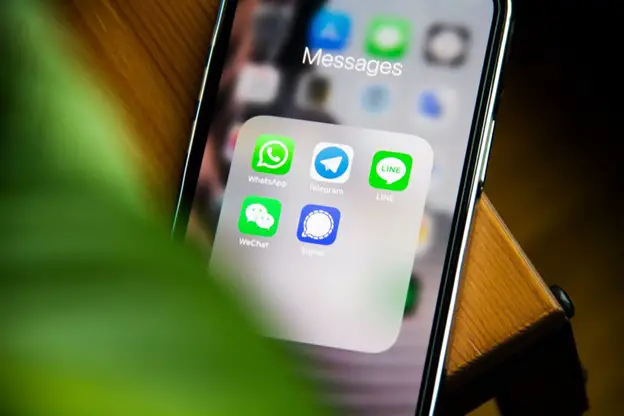
Note: This is a guest post written by Sam Nicholson
By now, you’ve probably heard about all the benefits of text message marketing, or maybe you run your own business and had the thought that maybe you could send text messages to customers.
Regardless of how you arrived at the conclusion that text messaging might be helpful in your marketing efforts, you must answer the “How does text message marketing work?” question before you start sending text messages.
We’ll answer that question in this article, so you can focus on how to get the best return from your text message marketing.
What is SMS marketing, and how does text message marketing work?

First, SMS marketing and text message marketing are essentially the same thing. SMS stands for Short Message Service. There are some technical differences between SMS and text messaging. However, they’re interchangeable for our purposes here, and this article will use both terms.
Next, the way SMS marketing works is very simple: you send text messages to customers with offers, event announcements and reminders, and other marketing messages. In most cases, customers can respond to your messages and click links in your SMS messages that take them directly to a website where they can take the next step in the purchase process.
That’s the gist of it, but there are some nuances and details in using text messaging as a marketing channel. These are the most important details:
- Customers must give you their phone number and consent to receiving text messages from you.
You cannot send SMS messages to customers without their permission. Always ask permission to text customers when you ask for their phone number.
- You must always give customers an easy way to stop receiving your text messages.
If you’ve ever received a text from a customer, you may have seen something such as, “Reply STOP to stop receiving text messages.” That’s to satisfy the requirement for an easy way to stop receiving text messages.
Both of these are legal requirements. If you fail to do these two things in your SMS marketing, you may be subject to pretty hefty fines.
The good news is that it’s relatively easy to satisfy both requirements.
You wouldn’t call or text someone in your personal life without asking for their phone number and at least giving an implied request for permission to call or text. Extend the same courtesy to your customers, and you’ll be okay.
Additionally, you can automate the process of giving customers a way to opt out of text messages. In most cases, a computer sends the message to offer recipients a way to opt out of text messages and automatically removes their phone number from the messaging database if the customer responds with a stop request.
That way it doesn’t take much work to ensure that you won’t incur fines or irritate customers with more messages than they want.
Why should businesses use text message marketing?
The short answer is that SMS marketing is easy, effective, and affordable.
Even if you don’t automate your text messaging marketing, most people are familiar with sending text messages. SMS messages have an incredibly high open rate. Then text messages cost just pennies to send.
However, there’s another reason why you should use text message marketing: platform compatibility.
While SMS messaging was originally developed for sending data over cellular networks, the functionality of SMS messaging has expanded beyond the stock messaging app on your phone.
Apps such as Facebook Messenger and WhatsApp offer the capabilities as standard text messaging, with additional features that deliver a better customer experience.
Yes, the technology behind WhatsApp and other messaging apps is different than traditional text messaging. However, the customer can’t tell the difference.
So you can take your text message marketing from standard SMS to Facebook Messenger and WhatsApp to reach more customers, because many people prefer communicating through these messenger apps.
You can also automate your messaging and responses on these platforms with tools such as the Telnyx WhatsApp business API, which enable you to set up and programmatically send entire text marketing campaigns.
Which businesses can use text message marketing?
Really, any business can use text message marketing. SMS is a convenient and reliable communication channel. If you need to communicate with customers, text message marketing will work in your business.
You may need to tailor your SMS marketing to fit your business model.
Some businesses get the best return by sending coupons and offers to their customers. Other businesses see the best results from sending information about events. In some cases, it may be most beneficial to focus on using text messaging to offer customer support and build brand loyalty.
Every SMS marketing program looks different, but every business can use text message marketing.
Bottom line: Does SMS marketing actually work?

Understanding how text message marketing works is important. However, you may not be convinced that SMS marketing actually works. We’ll leave you with a few numbers to cap everything off:
- 95% of text messages get read within three minutes of being received.
- SMS messaging has a click-through rate of 34.46%, which is higher than any other marketing channel.
- 45% of clients respond to text messages from brands they follow.
There are more marketing statistics that support SMS marketing. However this data shows that text messages get attention and action, which are huge staples in increasing sales.
If you’re not using text marketing yet, you should get started very soon.






